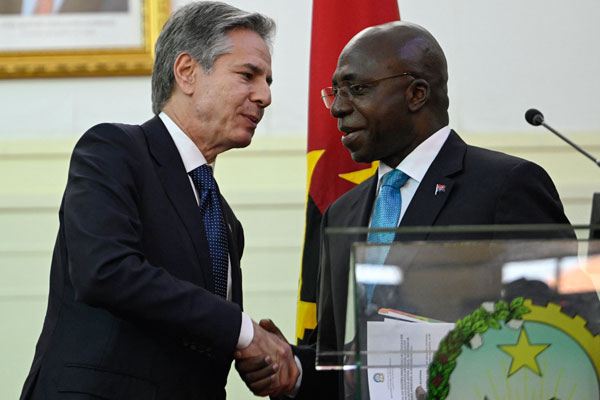Prime
Some notes on Tshisekedi and DR Congo’s future

Author: Asuman Bisiika. PHOTO/FILE
What you need to know:
- The most important thing the Congolese (and Africans) want from him is the organisation of a quality electoral process to birth the next DRC president.
After his election in 2018, President Felix Antoine Tshilombo wa Tshisekedi was the subject of the African Union’s interest. The venerable African Union is said to have planned a discussion on what they called the crisis in the DR Congo.
A conflict-prone country, the African Union’s interest was triggered by what they called the disputed electoral victory of Tshilombo wa Tshisekedi. It may please the reader to note that at the head of the African Union’s discussion table, there would be (have been) an African president whose last electoral victory had been over 99 percent. His name? Paul Kagame of Rwanda.
***************
President Tshisekedi has surprised many observers. No one expected he would even last his five-year mandate. President Kagame had kicked off the ‘doubt train’ by calling on the African Union to look into what he called the DR Congo Elections Crisis. Kgame’s call failed. What Kagame missed was that the international community’s interest was the peaceful transfer of power from (then) president Joseph Kabila to any other leader; notwithstanding the quality of the electoral process. Tshisekedi was ‘any other leader’.
However, we had an opinion on these elections. This is what I wrote after the 2018 presidential elections in the DR Congo: It is our considered opinion that the accusation that president Kabila made a blind pass to Tshisekedi is wrongly premised. Even if Kabila may have made that blind pass, we strongly believe the candidature of Tshisekedi had its own national appeal capable of an electoral first-past-the-post victory.
**************
The day was Saturday, January 20, 2024. It was the day president designate Tshisekedi (and winner of the December 20) elections was to be sworn-in (once again) as president of the Democratic Republic of Congo.
The placard carried by a young man in Quartier Rankin (Matonge) was ‘Papa Beton Vignt Vignt Vignt’ (Father Beton 20, 20, 20). One had to be Congolese to decipher the message on the placard: it meant president Tshisekedi was candidate number 20. He was voted on December 20. And he was being sworn-in on January 20. ‘Beton’ means concrete in French. As we speak now, President Tshisekedi now has the respect of other presidents on his side. He stood up to the bullies of the region and he is holding out.
He has the militaries of Southern Africa Development Cooperation countries behind him, just in case the bullies need a reminder on military might and diplomacy. Plus: he seems to be committed to really fight enemies of Congo (given the military assets he has re-sourced).
President Tshisekedi is unlikely to change the constitution to seek re-election in 2029. After Kabilia transferred power in 2019, it would be a scandal for Tshisekedi not to transfer power in 2029. So, his re-election in 2023 engenders the possibility of an opportunity to effect a peaceful change of power in the DR Congo in 2029.
In the minimum, the military (which often hedges those at the centre of changing constitutions) was not vortex of Tshisekedi’s re-election. And without the baggage that Kabila carried at the end of his regime, it is safe to assume that President Tshisekedi will deliver a better electoral process in 2029. He will not, after all, be a candidate in those elections.
Whereas Tshisekedi will be preoccupied with what he calls the ‘Rwanda menace’, the most important thing the Congolese (and Africans) want from him is the organisation of a quality electoral process to birth the next DRC president.
Mr Bisiika is the executive editor of the East African Flagpost. [email protected]




